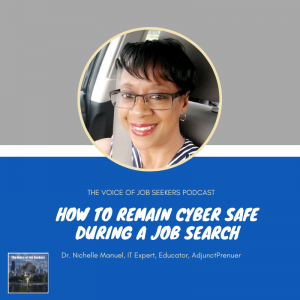
Podcast: Play in new window | Download | Embed
Subscribe: Apple Podcasts | RSS
Got comments about the show? Here’s how you can join the conversation:
Here is more information about Aja:
Here are a few highlights from the show:
-
Aja offers advice for those who do Air BnB as an example of how companies were helping those who were on Federal furlough
-
Talking to creditors – They are often helpful
-
Being a saver is creating a good financial habit
-
Digit and Tip yourself apps are helpful to save money
-
Hide money from yourself
-
Aja explains how her kids make money for their future
-
Move tax-deferred accounts with your jobs with comparable accounts – “Don’t forget the loot!”
-
Have an exit plan before it’s needed on how you want to move your money
-
Negotiating: You don’t have to take the “boilerplate” offer




